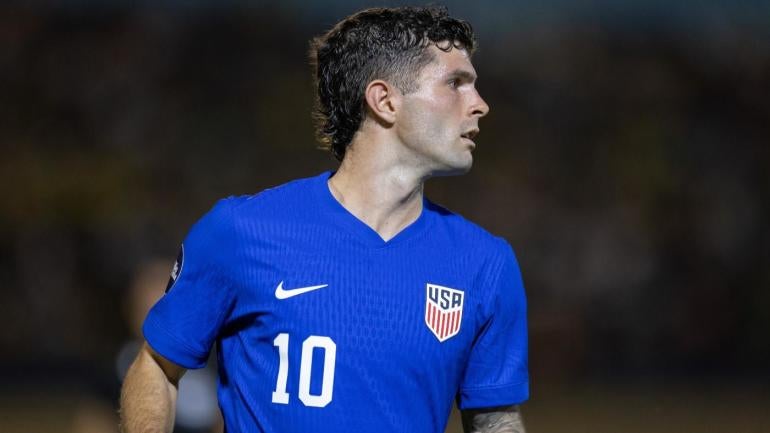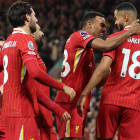
Christian Pulisic said he believes there is a bias against U.S. men's national team players in Europe, adding that he has experienced that stigma firsthand during his career. The AC Milan man is becoming an increasingly important player for the national team and in the upper echelons of the club game, his rise serving as the focus of the new Paramount+ docuseries "Pulisic." He is currently in the midst of a career-best season with eight goals and five assists for Milan across all competitions, successfully following up his debut season in Italy in which he scored 16 goals and notched 10 assists.
Even as he lives up to his potential, though, Pulisic admitted that he has witnessed the anti-American bias that he and his USMNT predecessors have spoken about for decades.
"It pisses me off, in a way 'cause I've seen it in front of my eyes," he said in the Paramount+ docuseries. "It happens for sure, and you can feel it. If it comes down to me or them and it's a 50-50 for the call from the coach [on] who's going to play or something like that, I think it exists."
Pulisic's opinion was matched by USMNT colleague Weston McKennie, who has battled his way into a starting role at Juventus two years in a row.
"There's definitely a bias and it's just something that you get used to," McKennie said. "I go through it most of the time. Whenever I'm at Juventus, every year somehow I'm on the out and I'm ready to be discarded and then every summer, I'm like a new player coming in, having to make a name for myself and it's like, when are you guys just going to finally just see that I can play at this level and I'm good enough for this level and I've done it enough times? But it's why Americans are the way we are because we always have this chip on our shoulder when we come to Europe."
USMNT players compete for European clubs at larger numbers than they used to and at increasingly higher levels. Pulisic and McKennie are just two of 12 Americans who have played in this season of the UEFA Champions League, a record for USMNT players in any given campaign. Though their presence in Europe has become more normalized in recent years, American players are still experiencing the side effects of an adjustment period as the U.S. becomes a bigger force in the world's most popular sport.
"The Americans in soccer, it's like 30 years ago when the Europeans used to go to the NBA," Christian Vieri, a retired Italy international, said. "They used to say, 'Why [are] you guys coming here? He's not good enough.' Now, you have a lot of European players in the NBA that are phenomenal. It's the same with Americans that are coming to play in Europe."
Vieri also recalled when USMNT defender Alexi Lalas became the first American-born-and-raised player to play in Serie A when he signed for Padova in 1994.
"The first ones always get smashed," Vieri said. "I played against Lalas in Padova. He had the guitar. People were going, 'What's he doing here? Play in America. It's not your sport. Go play baseball, it's boring.' … He wasn't a bad player. It's just that he was the first one to come."
There was one dissenting voice amongst the group interviewed for "Pulisic," though – AC Milan legend and special advisor to the club Zlatan Ibrahimovic. He has heaped praise on Pulisic, who is currently injured, as the American becomes a crucial player for club and country, but dismissed the idea that intangibles like an anti-American bias would obstruct a player's ability to rise up the ranks.
"No, I don't believe. I don't believe," Ibrahimovic said. "It's about, not because you're American. That is because the level is different. This is not an American, Euro, African or Asian thing. Wherever he's good, he will play. Trust me on this one."
















